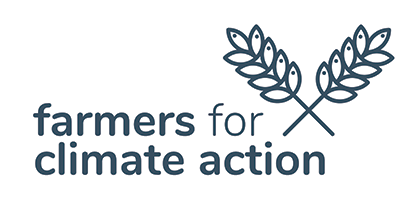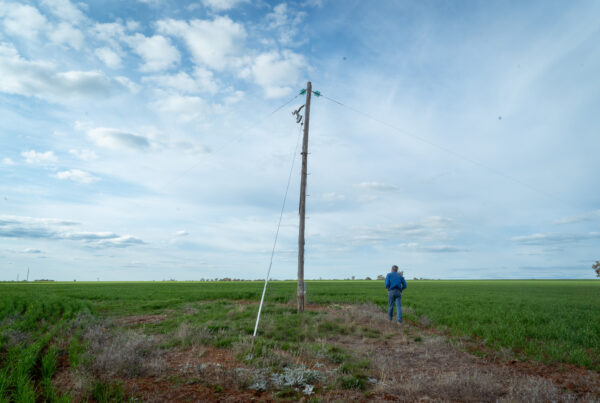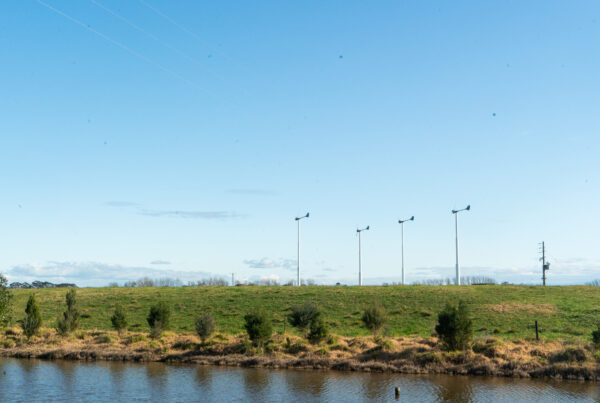May 2023
Nature Repair Market Bill 2023 and Nature Repair Market Bill 2023 Submission
Farmers for Climate Action thanks the Federal Government for the opportunity to provide further feedback and comments on the Nature Repair Market Bill.
About Farmers for Climate Action
Farmers for Climate Action is a movement of farmers, agricultural leaders and rural Australians working to have Australia adopt strong climate policies. We represent 7,800 farmers across Australia, and our supporter base includes more than 35,000 Australians committed to climate action for agriculture.
Relaying the views of farmers
FCA surveyed our members, with 455 responding to the survey within one week in May. As a representative group of farmers for climate and environmental action, we believe that it is critical that we relay the views of those whom we advocate for. Key high-level findings are:
● 65% supported the development of a nature repair market (32% unsure and 3% didn’t)
● 54% did not support the use of offsets within the scheme (30% were unsure and 16% supported offsets in the scheme)
● 60% said they would participate in the scheme (35% unsure and 5% wouldn’t participate)
Key insights from the survey are:
● Respondents would like this scheme to produce a net gain for the environment, rather than simply maintaining the status quo. While the market may benefit biodiversity, it would be not enough to solve the biodiversity crisis (by itself, it is a band-aid solution)
● A large number of respondents are extremely hesitant about offsets or disagree with them entirely. This is because many are concerned that they are a licence to destroy biodiversity and replace them with vegetation elsewhere
● The existing carbon offsets program is inadequate and many feel that it has been prone to corruption. There is a concern that the Nature Repair Markets would not benefit farmers and landholders as intended, and considerable independent regulation would be required to ensure that the program works as intended
● There needs to be support for smaller landholders and farmers since programs of this kind are typically difficult to understand and challenging to access.
● There is a general distrust of government and government schemes
● The Federal Government is better equipped to handle biodiversity programs than the states
● Some respondents would prefer a tax incentive scheme, rather than a complex natural market
● Many respondents do not know enough about the program to comment. They would like some resources/information which outline the proposals under the bill
The opportunity
As outlined in FCA’s previous submissions in March and through the ‘Have your say’ stage of consultation, FCA is a strong supporter of market mechanisms that reward the hard work that many Australian farmers have, and continue to undertake, in protecting Australia’s natural resources.
Recognising and financially rewarding Australian farmers and Indigenous land managers represents a significant opportunity to both protect existing biodiversity and restore degraded areas of our natural environment. Australian farmers manage more than 50% of Australia’s landmass and are a critical link to ensuring healthy natural resources for future generations.
Due to climate change, farmers across Australia are having to adapt to increasingly challenging climatic conditions and natural disasters. Biodiversity payments could help farmers through uncertain seasons through diversified payments for biodiversity maintenance and enhancement.
With 64% of surveyed FCA members being supportive of the scheme and 60% saying they would participate there is clearly a desire from the farming sector to be recognised for biodiversity protection and enhancement.
Risks
While FCA is supportive of establishing the market mechanism we note several key risks that require careful consideration to ensure that the Nature Repair Market delivers the desired
outcomes.
1. Offsets
FCA and many other submissions in the earlier rounds of consultation have warned about the risks of the Nature Repair Market being driven by offsets. The use of biodiversity credits as offsets for land clearing or other destruction of biodiversity would achieve the opposite of what the scheme aims to do.
The Nature Repair Market should not be dependent on offsetting as the market mechanism.
Just as there is no substitute for emissions reduction, there is no substitute for genuinely ending all loss of biodiversity (which the national scheme, executed properly, could be a contributor to). We acknowledge that offsetting is regulated under the EPBC Act, and note that for the Nature Repair Market to work effectively, the Act must be amended to clearly address this risk as outlined in section 2 below.
2. Broader policy mix
FCA cautions against rushing the Nature Repair Market ahead of the detail of the EPBC revisions and establishment of the Environmental Protection Agency.
The government’s response to the Samuel review of the EPBC Act as outlined in the Nature Positive Plan includes the establishment of National Environmental Standards and the establishment of a new national Environmental Protection Agency. FCA is supportive of these responses, but has concerns about the order of implementation of the market prior to the regulatory and monitoring environment being resolved. The Nature Repair Market should be
aligned with the main legislative framework for biodiversity conservation.
Likewise, FCA welcomed the Chubb review findings for increased transparency and integrity in the carbon market. It is critical that the implementation of the Nature Repair Market use the findings of the Chubb review to avoid repeating similar mistakes that have eroded landholder trust in that scheme.
3. Continued investment in biodiversity restoration and protection
FCA, while supportive of the market mechanism, does not want to see this replace the urgent need for increased investment in assisting landholders to restore and protect biodiversity on farms, as well as adjacent public lands. There continues to be an urgent need for direct funding for conservation and restoration programs, to enable land managers, whether they be farmers, indigenous land managers or community groups, to protect and restore natural ecosystems.
4. Additionality
The extinction crisis is well understood in Australia and landholders, both farmers and indigenous, should be rewarded for the historical conservation of our ecosystems. A perverse system that only recognises those that have degraded landscapes should be avoided.
A common frustration from FCA members is that those who had historically been improving their farms’ systems through re-vegetation and other interventions were exempt from the carbon market. FCA welcomes the intent of the Nature Repair Market to both protect and enhance biodiversity.
The Enhancing Remnant Vegetation scheme provides an opportunity for farmers to fence off and improve remnant vegetation including through pest and weed control. It is a vital part of providing equity in biodiversity payments and providing a positive incentive to protect what little of our quality forest is left, and it should be reinstated.
Credits should be made available for not only the creation, but for the protection of existing, well-managed conservation sites. These areas often require additional support to ensure their ongoing protection.
5. Accurate mapping
FCA is concerned that the Nature Repair Market and Emissions markets are based on what is widely considered in many regions to be an accurate mapping of ecosystems and current fauna and flora.
FCA understands that the Commonwealth and the States are exploring how to improve ecosystem mapping and welcomes this. With current and emerging technologies there is no longer the need for expensive and timely teams of ecologists on the ground for mapping purposes. A decentralised evidence-gathering digital imaging approach that rewards indigenous and farming landholders for image collection should be considered.
6. Integrity of the methods and credits
While this response is limited to framework development, FCA stresses the need for a transparent and robust approach to method development.
The integrity of credits is a cornerstone of any scheme to verify and certify biodiversity improvements. Markets collapse due to a lack of integrity.
Achieving credibility and integrity requires the genuine involvement of appropriate scientific and environmental experts in the process of developing and monitoring the scheme. Methods should be built by respected experts at a respected university or similar. An ecologist would be better able to describe the factors that determine ecosystem success and importance.
7. Land use
FCA advises caution against a scheme that encourages corporates to buy agricultural land and convert the entire land mass into projects under the scheme. Careful consideration of how the needs of biodiversity protection and enhancement can be balanced with the needs for food security and thriving regional communities.
Similarly, it’s vital to ensure that the benefits of conservation and restoration activities are equitably distributed. If the market for biodiversity credits is dominated by large corporations, they may use their financial power to acquire large amounts of credits, leaving small landholders vulnerable and place regional community resilience at threat.
Other considerations:
● There may be an opportunity in linking carbon and biodiversity credits. Whilst there may not currently be a large market for lone biodiversity certificates, when companies seeking carbon credits are given the choice to pay extra for a planting that also benefits biodiversity, companies are much more likely to pay for the biodiversity
● We have concerns about the one project / one credit scheme: If a project area is set too high it could exclude small to medium land owners. Conversely, if it is set too low it could lead to micro-projects to obtain more credits. Whilst a land area quantum is useful for simplicity it can fail to identify the relative quality of projects. We propose metrics to be based around the critical importance of ecosystems being protected, plus connectivity with other areas.
● It’s vital to ensure that the benefits of conservation and restoration activities are equitably distributed. If the market for biodiversity credits is dominated by large corporations, they may use their financial power to acquire large amounts of credits, leaving small landholders and Indigenous communities without access to the benefits of this new market.
● The government could establish a system where conservation contracts are awarded to landholders based on a competitive tender process. This system can be targeted to support the protection and restoration of areas that are critical for biodiversity conservation, such as high conservation value forests, wetlands, and coastal ecosystems.
We thank you for the opportunity to share our reflections and are happy to discuss our submission with you at your convenience.
Sincerely,
Fiona Davis
CEO
Farmers for Climate Action







